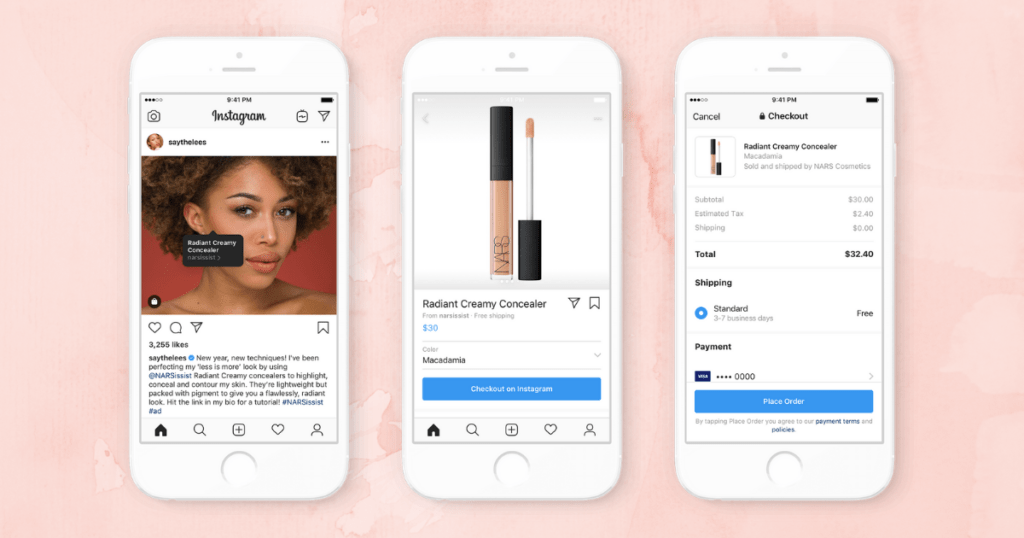
Looking back, online sales have enjoyed steady gains for the past three decades. Most recently, the pandemic sparked unprecedented growth during 2020. Last year, eCommerce marketing rose to account for 18 percent of worldwide sales.
This news should excite online marketers. Still, the expanded market also attracted plenty of new competitors and larger investments from existing ones. In other words, online businesses can enjoy a golden opportunity to attract new customers and sell even more to their current ones.
Still, companies need to invest more in learning about their customers and improving their platforms to retain their share of customers. Learn how a top eCommerce marketing agency will guide their own clients to even greater levels of success in the coming year.
What eCommerce Features Attract Online Shoppers?
If nothing else, consumers enjoy plenty of choices when they want to shop online. To attract customers, businesses need to deliver the features and experiences that their market prefers. To figure out what online shoppers want in general, Global Web Index surveyed a global pool of over 600,000 internet users from 16 to 64.
The respondents said they favored online stores with:
- Free shipping: Over half said that free shipping motivated their online purchases.
- Coupons or discounts: Over 40 percent mentioned buying online for the chance to save money.
- Reviews: About 35 percent said that positive reviews from past customers prompted them to buy online.
- Easy returns: One-third of the respondents checked the return policy before making a purchase.
Besides the preferences mentioned above, other survey respondents also mentioned favoring an easy checkout process, next-day delivery, loyalty programs, positive social media comments, and the ability to spread payments without having to pay interest. Over 20 percent of the surveyed online shoppers also said that they liked to buy environmentally friendly products.
An eCommerce Marketing Agency’s Best Practices for Shopify
At Bigeye, an eCommerce and Shopify marketing agency, experience has demonstrated that the features mentioned above can help improve sales. Still, they will only provide a competitive edge to eCommerce sites that already adhere to some common best practices.
Best Practices from the Perspective of an eCommerce and Shopify eCommerce Agency
Use clear, helpful images
Neil Patel mentioned a survey that found 51 percent of consumers prefer to shop online. That’s great news; however, that still leaves a lot of people who would rather shop in person, so they can see what they’re going to buy. Providing high-quality and informative images can help overcome reluctance and turn even more consumers into online shoppers.

Display Real Reviews
Reviews provide the kind of social proof that many shoppers look for before they start to fill an online shopping cart. Of course, most people don’t bother to leave reviews, or just as bad, they only leave them when they experience problems.
To encourage reviews from satisfied customers:
- Ask for reviews: If possible, automate the process of asking for reviews. For instance, businesses could automatically add review requests to the email confirmation of the sale and the delivery, plus a followup email to ensure satisfaction.
- Reward reviews: Businesses come up with various ways to reward reviews. Some companies offer extra points for a loyalty program or discount coupons. Loyalty programs can encourage repeat purchases, and used in this way, they can indirectly help encourage new sales from customers who see past reviews.
Take Advantage of Shoppable Posts
The ability to make sales directly from social media has grown more important recently. As mentioned in an earlier article about eCommerce social marketing trends, Shoppable posts let marketers embed lots of information right into product images. This information includes a product description, price, and how to make a purchase. Think of Shoppable posts as similar to catalogue images but embedded right into social media feeds.

Plan an eCommerce Email Strategy
Working with an email design agency can increase sales from both new and established customers. An earlier Bigeye article on building an eCommerce email strategy explained such important benefits as maintaining connections and encouraging relationships. Just as important, timely emails can provide helpful information about new promotions, special offers, and even the timing of deliveries.
Thus, emails won’t just help increase sales; they can also improve customer satisfaction and reduce emails and calls to customer service. Even better, online marketers can automate almost all aspects of their email campaigns with tools like Narvar and Klayvio that integrate easily into Shopify sites.
Avoid Common eCommerce Mistakes
Sometimes, businesses do almost everything right. Mostly, just one simple mistake curtails sales or profits. To understand three common mistakes, review a summary of the most common eCommerce myths that can lead sellers astray:
- Making a site accessible on the internet means people will find it. Besides Amazon, eBay, and other large retail sites, shoppers can find plenty of small, specialized online shops. At the same time, most eCommerce sites fail because they suffer from poor search visibility and/or the lack of effective marketing.
- Free shipping is really free. Even though consumers love free shipping, somebody has to pay for it. Failing to either build the cost into prices or simply charge for shipping can destroy profits or even lead to losses.
- Online sellers should work alone. An experienced Shopify development firm, like Bigeye, can ensure an online marketing business will build their brand, adhere to best practices to optimize conversions, and avoid damaging mistakes.
Know Where Your Customers Come From
Customer insights offer marketers the next-best-alternative to actually watching each shopper make a purchase decision. They can tell businesses how customers learned about a product, what motivated them to fill their shopping cart, and how long they spent on various pages of the eCommerce site.
Most of all, customer analytics lets online sellers understand which marketing channels produce the best returns and which ones either need some work or a reduced investment. To get started, look at two aspects of gathering information about customers.
Marketing Attribution
As highlighted by this Bigeye article, marketing attribution can do much more than simply track conversions. For instance, it can track which ads customers saw, how they reacted to a social post, and even which of multiple touchpoints influenced a buying decision. Some platforms can even track other media, like TV and radio. Based on various attribution models, platforms can help credit a portion of a sale to various points along the customer’s journey.
In this age of multichannel marketing and complex marketing funnels, eCommerce businesses need marketing attribution to grow. Some examples of popular marketing attribution tools include the HubSpot Marketing Analytics Dashboard, Windsor.AI, and Ruler Analytics.
Marketing Attribution Funnels
As Bigeye pointed out, most marketers don’t believe they can truly measure ad spend across all channels. Marketers with no insight into the entire customer journey will inevitably drain profits from the best eCommerce websites, product offerings, and other marketing.
In contrast, delivering useful metrics generally requires clearly defined marketing funnels. Besides website trackers, consider using platforms, like the ones mentioned in the previous section, to integrate conversions with analytics from emails, contact forms, social media, and other channels.
Don’t Try to Tackle Everything Alone
Hopefully, this overview of customer preferences, eCommerce best practices, and the importance of tracking customers will offer most online businesses some actionable insights to help increase sales. With tips that range from adding new features to implementing a marketing attribution platform, some sellers may feel overwhelmed or at least, unsure where to begin.
From new startups to large enterprises, Bigeye partners with eCommerce businesses to develop brands, tune online presences, learn more about customers, and most of all, to grow. Reach out to talk about your business and learn how Bigeye will help.


